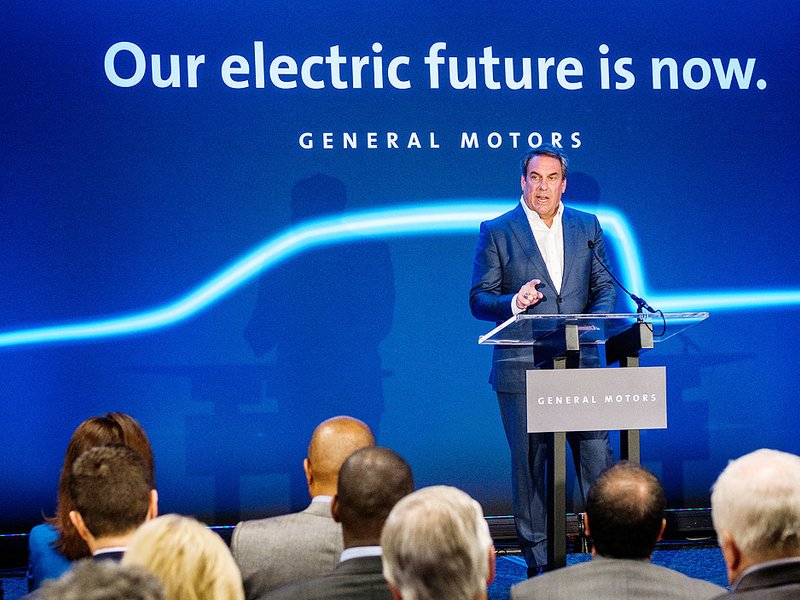
DETROIT — General Motors will start making the Cruise Origin autonomous shuttle shortly after it starts making an all-electric pickup at the Detroit-Hamtramck assembly plant late next year.
The company announced the production plan Monday morning as part of its planned $2.2 billion investment in the factory, which had been slated for closure prior to last year’s negotiations with the UAW.
Cruise, based in San Francisco, showed the Origin for the first time last week. But the company’s first autonomous ride-hailing offerings will use the Chevrolet Bolt-based third-generation autonomous vehicle, which still has a steering wheel and brake pedals.
Cruise Origin production will start in late 2022, AutoForecast Solutions told Automotive News on Friday.
The investment will create more than 2,200 jobs. Today, 900 workers are employed on one shift at the plant. Production of an all-electric pickup will begin in late 2021, GM said. GM will also invest $800 million in supplier tooling and other projects related to EV production, according to a statement.
“GM is taking a big step forward in making our vision of an all-electric future a reality,” Mark Reuss, GM president said during a press briefing here.
GM’s $2.3 billion joint venture with LG Chem will supply battery cells for the EVs built at D-Ham.
State incentives
GM’s new investment in the 35-year-old Poletown plant was part of a deal the automaker reached last week with the state’s economic development board, the Michigan Strategic Fund.
In order to be eligible for $2.27 billion in Michigan Economic Growth Authority (MEGA) tax credits through the end of 2029, GM committed to $3.5 billion in new capital investment in Michigan facilities.
Under the deal, GM can only count $2 billion of the Detroit-Hamtramck assembly plant toward the $3.5 billion in total new investment combined with maintaining a statewide workforce of 34,750 employees.
The state approved the amendment to GM’s MEGA tax credits last Wednesday. As part of the deal, GM agreed to reducing its MEGA tax credits by $325 million over ten years in exchange for more flexibility in where it counts the 34,750 tax credit-eligible jobs across a statewide workforce of 45,000 employees.
Chad Livengood of Automotive News’ affiliate Crain’s Detroit Business contributed to this report.